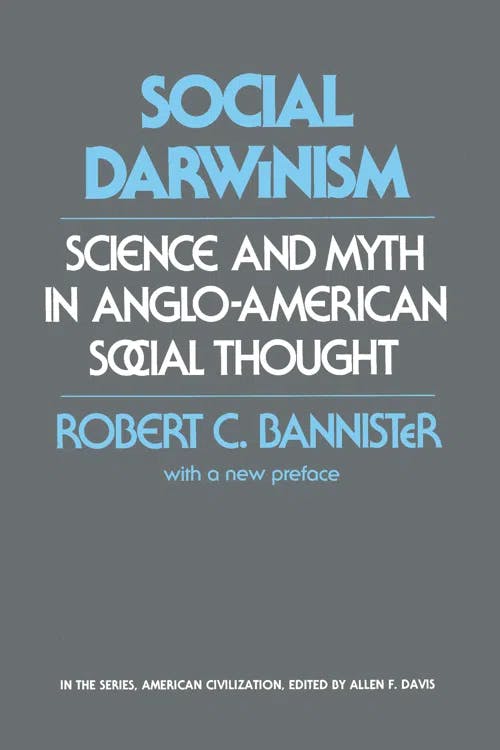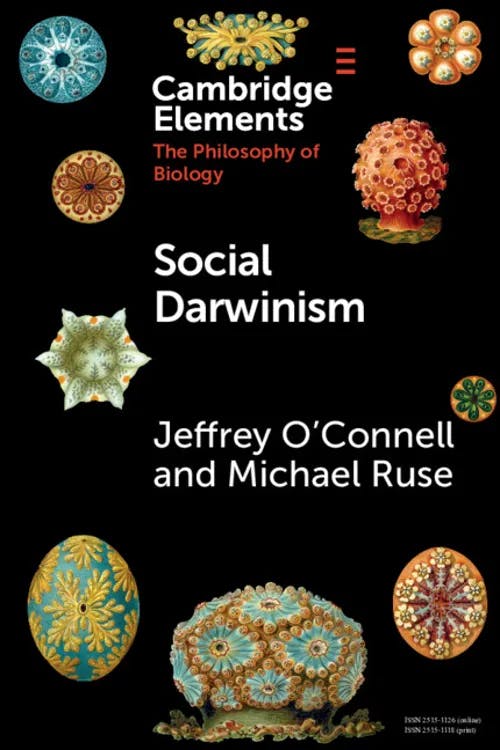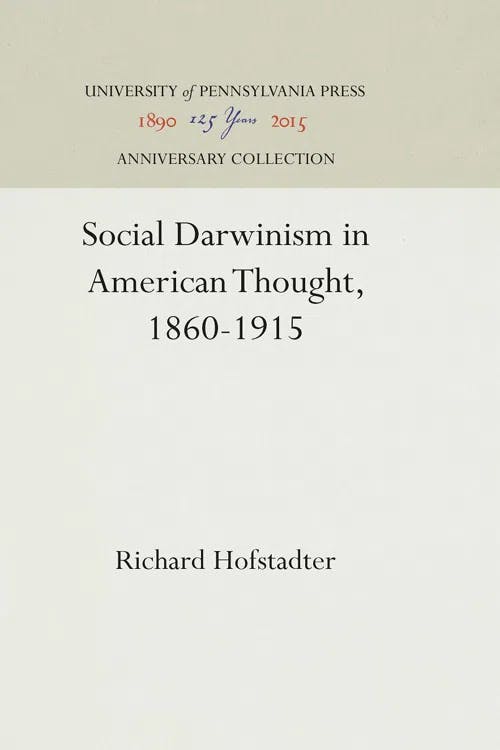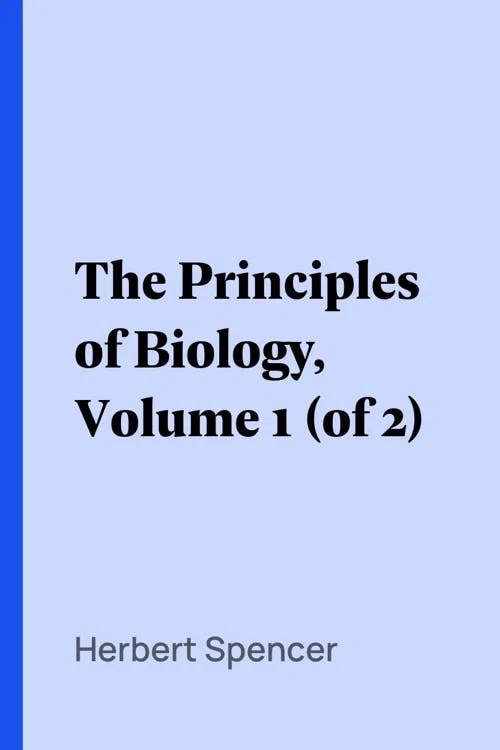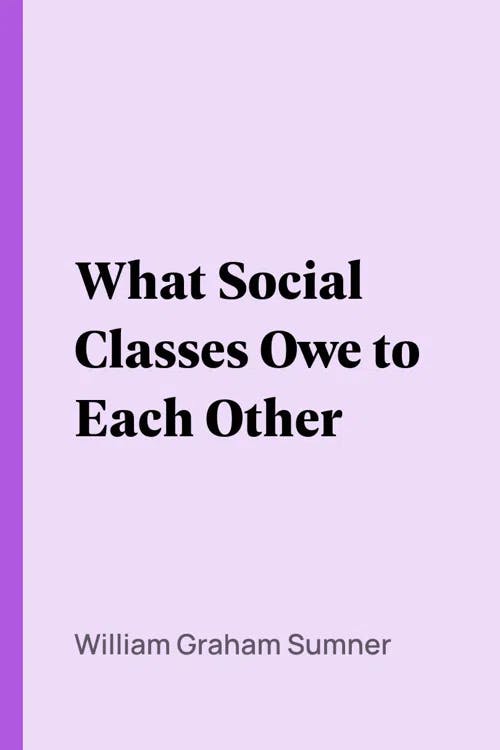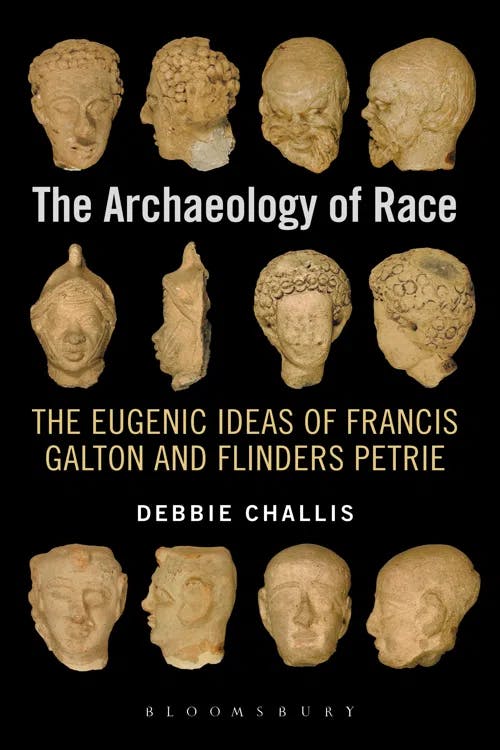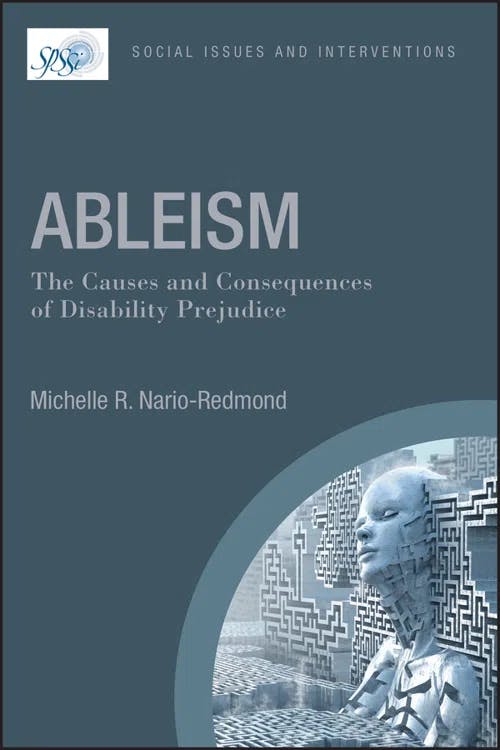What is Social Darwinism?
PhD, English Literature (Lancaster University)
Date Published: 09.01.2024,
Last Updated: 10.01.2024
Share this article
Definition and origins
Social Darwinism emerged in the nineteenth century as a response to Charles Darwin’s theory of evolution by natural selection, in which he describes how the strongest and fittest of the species survive to pass on their genes. Social Darwinists believe Darwin’s evolutionary theories can be applied to human populations and that certain people thrive in society because they are genetically superior. Conversely, they believe that society’s “weaker” members will be eradicated through natural selection (often in the form of famine and disease) or artificial selection (i.e., selective breeding). Those who espouse these views do not tend to label themselves as “social Darwinists,” as this is typically seen as a pejorative term used to describe those who interpret Darwinian ideas as a way to justify discrimination and poverty. Social Darwinism is a controversial theory as it has been used to justify racism, imperialism, eugenics, and laissez-faire capitalism.
Though the term bears Charles Darwin’s name, the main ideas of social Darwinism — the concept of the “survival of the fittest” and certain groups being innately superior — pre-date the publication of Darwin’s major works on evolution, On the Origin of Species (1859, [2014]) and The Descent of Man and Selection in Relation to Sex (1871, [2012]). As Robert C. Bannister explains, the term “social Darwinism” has had multiple meanings:
Appearing first on the Continent about 1890, the phrase social Darwinism described a variety of evils by the time it crossed the Atlantic two decades later. To Achille Loria and Emile de Laveleye, two distinguished European sociologists, Darwinism sociale meant brutal individualism, such as Herbert Spencer advocated. For others it was a new rationale for socialism and the class struggle. In the 1890s, the Russian-born pacifist Jacques Novicow used Le Darwinisme social to describe a rising tide of imperialist and militarist sentiment. When in 1906 the American socialist Lester Ward accepted an invitation to discuss social Darwinism, he discovered to his surprise yet another meaning - eugenics. (2010)
Robert C. Bannister
Appearing first on the Continent about 1890, the phrase social Darwinism described a variety of evils by the time it crossed the Atlantic two decades later. To Achille Loria and Emile de Laveleye, two distinguished European sociologists, Darwinism sociale meant brutal individualism, such as Herbert Spencer advocated. For others it was a new rationale for socialism and the class struggle. In the 1890s, the Russian-born pacifist Jacques Novicow used Le Darwinisme social to describe a rising tide of imperialist and militarist sentiment. When in 1906 the American socialist Lester Ward accepted an invitation to discuss social Darwinism, he discovered to his surprise yet another meaning - eugenics. (2010)
Bannister goes on to explain that in the 1940s, the definition of social Darwinism was expanded to refer to how the survival of the fittest ideology was applied to humanity.
On the Origin of Species and The Descent of Man
Darwin’s On the Origin of Species is considered to have laid the foundation for evolutionary biology. Darwin’s main points can be summarized as follows:
- Evolution occurs over long periods of time with small incremental changes. This is opposed to Creationism, which believes humankind occurred due to an abrupt, divine event.
- Animals and plant species evolve through natural selection. Organisms more adaptable and suited to the environment are more likely to survive and reproduce. This means that, over time, these stronger traits are passed on and become more common in the population.
- All living organisms share a common ancestry and diversity has arisen through speciation events.
- Plants and animals are distributed around the world due to migration and certain species being more adapted to different environments.
- Humans could select animals and plants with specific traits for artificial breeding, leading to the creation of new organisms.
(1859, [2014])
It wasn’t until The Descent of Man in 1871 that Darwin began to apply his evolutionary theory to humans. In this work, Darwin discusses similarities between humans and other species, the evolution of morality and intellect, and sexual selection. As Jeffrey O’Connell and Michael Ruse point out,
The Descent of Man started the tradition of worrying about the bad effects of unrestrained breeding. (2021)
Jeffrey O'Connell and Michael Ruse
The Descent of Man started the tradition of worrying about the bad effects of unrestrained breeding. (2021)
Indeed, Darwin argues that this unrestrained breeding has led to the “degeneration of the domestic race,” resulting in “civilized” nations providing asylums, hospitals, and instituting poor laws in an attempt to aid the “helpless” members of society (1871, [2012]). Darwin adds that intentional neglect of those weaker members is “evil” and that we must “bear without complaining the undoubtedly bad effects of the weak surviving and propagating their kind” (1871, [2012]). He does suggest, however, that “weaker and inferior members of society” should be prevented from freely marrying (1871, [2012]).
The Descent of Man was also instrumental in shaping nineteenth-century views on racial hierarchies, and it was used to justify scientific racism. O’Connell and Ruse add that,
for all that Darwin never would have used his theory to wipe out the Jews, the fact is that he was aware of the kinds of uses to which his theory could be put. (2021)
Richard Hofstadter concurs, writing that,
If Darwinism was not the primary source of the belligerent ideology and dogmatic racism of the late nineteenth century, it did at least put a new instrument into the hands of the theorists of race and struggle. (2017)
Richard Hofstadter
If Darwinism was not the primary source of the belligerent ideology and dogmatic racism of the late nineteenth century, it did at least put a new instrument into the hands of the theorists of race and struggle. (2017)
While Darwin may not have sanctioned his work to be interpreted as a basis of scientific racism, white supremacist discourse is clearly present in The Descent of Man:
At some future period, not very distant as measured by centuries, the civilized races of man will almost certainly exterminate, and replace, the savage races throughout the world. (1871, [2012])
Charles Darwin
At some future period, not very distant as measured by centuries, the civilized races of man will almost certainly exterminate, and replace, the savage races throughout the world. (1871, [2012])
The following sections will explore how Darwin’s theory of evolution was used as a tool for both justifying poverty and sanctioning eugenics programs in the late nineteenth and early twentieth centuries.
The beginning of social Darwinism
Herbert Spencer
Despite Darwin’s influence, many scholars argue it is really philosopher Herbert Spencer who is the father of social Darwinism:
Much of what later came to be associated with “Social Darwinism” would be better thought of as “Social Spencerism.” (Clifford S. Poirot Jr., Evolutionary Social Theory and Political Economy, 2023)
Clifford S. Poirot Jr.
Much of what later came to be associated with “Social Darwinism” would be better thought of as “Social Spencerism.” (Clifford S. Poirot Jr., Evolutionary Social Theory and Political Economy, 2023)
The core ideas associated with social Darwinism (laissez-faire capitalism, aggressive individualism, survival of the fittest, natural inequality, and individualism) were present in Spencer’s work prior to him becoming familiar with Darwin’s research, though Spencer did update and extend his ideas when he encountered Darwin’s work. Spencer’s first major text Social Statics (1851) details how societies evolve over time and individuals must adapt.
It is in The Principles of Biology (1864, [2017]), however, written as a reflection and expansion on Darwin’s Origins, that we see perhaps Spencer’s most significant contribution to social Darwinism. Here, Spencer argues that within a society, the weak will be eliminated and make way for the strong. In this work, he coined the phrase “survival of the fittest,” which would later be used by, and often incorrectly attributed to, Darwin:
This survival of the fittest, which I have here sought to express in mechanical terms, is that which Mr. Darwin has called “natural selection, or the preservation of favoured races in the struggle for life.”(1864, [2017])
Herbert Spencer
This survival of the fittest, which I have here sought to express in mechanical terms, is that which Mr. Darwin has called “natural selection, or the preservation of favoured races in the struggle for life.”(1864, [2017])
Spencer goes on to state that organisms are either “fit for living” or “unfitted for living,” with the latter being unable to adapt and dying out (1864, [2017]):
Doubtless many who have looked at Nature with philosophic eyes, have observed that death of the worst and multiplication of the best, tends towards maintenance of a constitution in harmony with surrounding circumstances. That the average vigour of any race would be diminished did the diseased and feeble habitually survive and propagate; and that the destruction of such, through failure to fulfil some of the conditions to life, leaves behind those which are able to fulfil the conditions to life, and thus keeps up the average fitness to the conditions of life; are almost self-evident truths. (1864, [2017])
The idea that nature has ways of removing the “unfit” provided justification for a lack of altruism in the face of the rampant poverty present in the Victorian period.
Poverty and laissez-faire capitalism
Both Darwin and Spencer were inspired by Malthusian theory, put forth by economist Thomas Malthus in An Essay on the Principle of Population (1798). Malthus argued that the planet’s population will increase to unsustainable levels, resulting in food shortages, famine, and disease. For Malthus, poverty was inevitable and the government, therefore, should not intervene. Malthus suggested that the population could be thinned out and natural selection hurried along by making “the streets narrower,” “[crowding] more people into houses,” and “[courting] the return of the plague”(1798, [2018]).
Malthus and Spencer inspired numerous conservatives who saw their work as evidence of the futility of philanthropy and the inevitability of economic inequality. As Hofstadter states,
In the Spencerian intellectual atmosphere of the seventies and eighties it was natural for conservatives to see the economic contest in a competitive society as a reflection of the struggle in the animal world. [...] The competitive order was now supplied with a cosmic rationale. Competition was glorious. Just as survival was the result of strength, success was the reward of virtue. (2017)
One of the main advocates for this type of laissez-faire policy was American sociologist and economist, William Graham Sumner. In What Social Classes Owe to Each Other (1883, [2006]), Sumner echoes the ideas of Malthus, explaining his theory that nature has a way of remedying “vice”:
A drunkard in the gutter is just where he ought to be, according to the fitness and tendency of things. Nature has set up on him the process of decline and dissolution by which she removes things which have survived their usefulness.
William Graham Sumner
A drunkard in the gutter is just where he ought to be, according to the fitness and tendency of things. Nature has set up on him the process of decline and dissolution by which she removes things which have survived their usefulness.
Sumner states that “the élite of the race has yet been raised to the point where reason and conscience can even curb the lower motive forces,” in comparison to the masses who are deprived due to their lack of self-control (1883, [2006]). In The Challenge of Facts and Other Essays, Sumner argues that society must prioritize its “strongest” members:
Let it be understood that we cannot go outside this alternative: liberty, inequality, survival of the fittest; not-liberty, equality, survival of the unfittest. The former carries society forward and favors all its best members; the latter carries society downwards and favors all its worst members. (1914)
The desire to create “elite” populations by prioritizing certain characteristics resulted in prejudice towards certain groups, such as the disabled, elderly, and non-Europeans, in the twentieth century.
Eugenics
Social Darwinists used evolutionary theories to justify eugenics — the process, or study of, increasing “desirable” characteristics within a population through controlling the birth rates in less desirable groups. As André Pichot writes in The Pure Society,
Eugenics presents itself as the purification of society of all those individuals who are ‘undesirable’ and ‘inferior’ from a biological or psychological point of view. Among these undesirables and inferiors necessarily figure those of particular races, with particular hereditary characteristics that are not deemed ‘eugenic’. (2020)
André Pichot
Eugenics presents itself as the purification of society of all those individuals who are ‘undesirable’ and ‘inferior’ from a biological or psychological point of view. Among these undesirables and inferiors necessarily figure those of particular races, with particular hereditary characteristics that are not deemed ‘eugenic’. (2020)
The term “eugenics” was coined by Darwin’s cousin, Francis Galton. Galton wrote numerous works on eugenics including Inquiries into Human Faculty and Its Development (1883, [2004]) and Hereditary Genius (1869, [2012]), the latter of which was acknowledged by Darwin in The Descent of Man:
as Mr. Galton has remarked, if the prudent avoid marriage, whilst the reckless marry, the inferior members will tend to supplant the better members of society. (1871, [2012])
In Hereditary Genius, Galton argues that only some men are capable of becoming eminent leaders, drawing upon Thomas Carlyle’s great man theory:
This idea of ‘great men’ was influential; it enforced an idea of history-making men who had great abilities as well as terrible flaws. Related adjectival terms and their use in the mid-nineteenth century, such as ‘ablest’, ‘eminent’ and genius, owed much to Carlyle’s thinking. (Debbie Challis, The Archaeology of Race, 2013)
Debbie Challis
This idea of ‘great men’ was influential; it enforced an idea of history-making men who had great abilities as well as terrible flaws. Related adjectival terms and their use in the mid-nineteenth century, such as ‘ablest’, ‘eminent’ and genius, owed much to Carlyle’s thinking. (Debbie Challis, The Archaeology of Race, 2013)
Challis explains that “the language of Social Darwinism, such as ‘hygiene’, ‘fitness’, ‘stock’, that Galton used to describe issues of race became more fixed and, though still nebulous, was given a scientific edge” (2013).
In Memories of My Life, Galton divided newly married couples into three classes, relating to the “probable civic worth of their offspring”: desirables, passables, and undesirables (1908, [2015]). He further lamented that “social and moral support” is “monopolised” by undesirable groups, furthering the “production of the Unfit” (Galton, 1908, [2015]). For Galton, eugenics offered a way to control the birth rate of the “Unfit” and improve the race by “furthering the productivity of the Fit by early marriages and healthful rearing of their children” (1908, [2015]).
Another influential supporter of eugenics was Ernst Haeckel. Haeckel admired the Spartan practice of killing unhealthy babies, an act which he viewed as “a remarkable instance of artificial selection in man,” which meant “the Spartan race was not only continually preserved in excellent strength and vigour, but the perfection of their bodies increased with every generation” (The History of Creation, 1876, [2012]). He wrote that if Germany were to
kill, immediately upon their birth, all miserable, crippled children to whom with certainty a sickly life could be prophesied, instead of keeping them in life injurious to them and to the race, our so-called “humane civilization” would utter a cry of indignation. But the same “humane civilization” thinks it quite as it should be, and accepts without a murmur, that at the outbreak of every war (and in the present state of civilized life, and in the continual development of standing armies, wars must naturally become more frequent) hundreds and thousands of the finest men, full of youthful vigour, are sacrificed in the hazardous game of battles. (Haeckel, 1876, [2012])
Ernst Haeckel
kill, immediately upon their birth, all miserable, crippled children to whom with certainty a sickly life could be prophesied, instead of keeping them in life injurious to them and to the race, our so-called “humane civilization” would utter a cry of indignation. But the same “humane civilization” thinks it quite as it should be, and accepts without a murmur, that at the outbreak of every war (and in the present state of civilized life, and in the continual development of standing armies, wars must naturally become more frequent) hundreds and thousands of the finest men, full of youthful vigour, are sacrificed in the hazardous game of battles. (Haeckel, 1876, [2012])
Galton and Haeckel’s work on eugenics contributed significantly to various inhumane programs such as forced sterilization. Eugenicist views on desirable human characteristics and the notion of a “pure” race have produced a legacy of racism, discrimination, and ableism which is still observable today.
Twentieth-century eugenics programs
The United States
Though many associate eugenics programs with Nazi Germany, eugenics was being practiced around the world before the rise of the Nazi party in the 1930s. As Pichot highlights, the groundwork for eugenics as a theoretical field was solidified by Galton and the Eugenics Education Society in Britain. However,
The propaganda and lobbying of associations and biologists came up against the English democratic tradition, and the political authorities opposed the demands of these scientists. Several bills for sterilization measures were rejected by the House of Commons, particularly in 1931 and 1934, the time when eugenic legislation crossed the Atlantic from the United States, where it had been pioneered. (Pichot, 2020)
In 1896, Connecticut passed a law forbidding the marriage of women under forty-five who were “mentally backward,” “abnormal,” “alcoholics,” or “suffering from venereal disease” (2020). In 1907, Indiana passed a law to sterilize women who fell into these categories. As Pichot points out, “Like all eugenic legislation, these laws had no serious scientific foundation” (2020).
Germany
It is important to note that there was a push for eugenic legislation in Germany prior to the Nazi regime. Between 1923 and 1924, for example, parliament drafted a law that would require sterilization for those with a range of medical and mental health conditions, such as dementia, manic depression, epilepsy, hereditary alcoholism, and Huntington’s. While this law was never put into place, it garnered a great deal of support (Pichot, 2020). It was with the rise of Adolf Hitler, and his desire to create a master Aryan race that eugenics, or “racial hygiene” as it was commonly referred to in Germany, became law. Richard Weikart writes,
No matter how crooked the road was from Darwin to Hitler, clearly Darwinism and eugenics smoothed the path for Nazi ideology, especially for the Nazi stress on expansion, war, racial struggle, and racial extermination. (2016)
Richard Weikart
No matter how crooked the road was from Darwin to Hitler, clearly Darwinism and eugenics smoothed the path for Nazi ideology, especially for the Nazi stress on expansion, war, racial struggle, and racial extermination. (2016)
One of the reasons that Hitler argued for eugenics was to offset a perceived imbalance created by the Second World War:
For Hitler, killing the disabled was supposed to help correct a biological problem the war created. He often remarked during the war that Germany’s strongest and healthiest men were dying at the front, while the weak and sick stayed behind. In August 1942 he stated, “Every war leads to a negative selection. The positive ones die en masse.” He wanted to offset this negative selection that seemed to fly in the face of natural selection, where the strongest and healthiest should survive and reproduce in greater numbers than the weak and sick. (2009)
Richard Weikart
For Hitler, killing the disabled was supposed to help correct a biological problem the war created. He often remarked during the war that Germany’s strongest and healthiest men were dying at the front, while the weak and sick stayed behind. In August 1942 he stated, “Every war leads to a negative selection. The positive ones die en masse.” He wanted to offset this negative selection that seemed to fly in the face of natural selection, where the strongest and healthiest should survive and reproduce in greater numbers than the weak and sick. (2009)
The Law for the Prevention of Offspring with Hereditary Diseases, mandating forced sterilization, was passed in 1933. The nine conditions and disabilities which fell under this law were:
- Hereditary feeble-mindedness
- Schizophrenia
- Bipolar disorder or manic depression
- Hereditary epilepsy
- Hereditary Huntington’s
- Hereditary blindness
- Hereditary deafness
- Severe hereditary bodily malformations
- Alcoholism
Pichot further indicates several other aspects of the eugenics legislation in Germany. For example, if SS men wished to marry, they would need to prove that their fiancée was fertile, that her parents did not have any physical or mental health conditions, and that the family had no Jewish or Slavic ancestry. These mandates demonstrate a clear link between eugenics and the racial laws that became implemented with the rise of fascism in Nazi Germany.
Anti-semitism and the Holocaust
Hitler’s vision of an all-German, or Aryan, nation involved the eradication of the Jewish people, whether in the form of deportation or mass murder. However,
even though Hitler did not necessarily have to commit genocide to accomplish the goals implicit in his evolutionary ethic, his long-term vision was in many respects genocidal. Since he thought the Aryan race was biologically superior to all other races, he ultimately expected them to thrive, reproduce abundantly, and ultimately outstrip all other races. In Hitler’s view of long-term historical development, all other races were slated for extinction as the Aryans gradually gained more and more living space at their expense. (Weikart, 2009)
Hitler used social Darwinist rhetoric to spread his anti-semitic ideology, arguing that the eradication of the Jews was a way of ensuring the survival of the Aryan race. In his autobiographical manifesto, Hitler distorted Darwin’s theory to put forward his persecutory agenda:
Since the inferior always outnumber the superior, the former would always increase more rapidly if they possessed the same capacities for survival and for the procreation of their kind; and the final consequence would be that the best in quality would be forced to recede into the background. Therefore a corrective measure in favour of the better quality must intervene. (1925, [2017])
Adolf Hitler
Since the inferior always outnumber the superior, the former would always increase more rapidly if they possessed the same capacities for survival and for the procreation of their kind; and the final consequence would be that the best in quality would be forced to recede into the background. Therefore a corrective measure in favour of the better quality must intervene. (1925, [2017])
As well as preventing what he saw as “miscegenation,” Hitler would go on to order the “Final Solution”: the mass murder of the Jewish population in Europe, through initial deportation followed by systematic annihilation. Harrowingly, around six million Jewish people, approximately two-thirds of the Jewish population, were murdered during the Holocaust.
Social Darwinism played a large part in the Holocaust and the persecution of the Jewish people more broadly in the early twentieth century. As previously mentioned, while Darwin would have likely not endorsed his theories being used to commit anti-Semitic genocide (see Weikart, 2016), we can see how the inhumane and competitive “survival of the fittest” mentality contributed to the desire for Hitler and his followers to create a “pure” nation, whereby Germany would prosper through the eradication of its perceived “weakest” members. Darwin’s theories, intentional or not, were seen to give credence to the racism and anti-semitism which already existed in Europe in the period.
Social Darwinism today
It is clear that social Darwinism, in a modified form, lives on today. Even the tongue-in-cheek Darwin Awards, given for bizarre deaths, occurring due to the short-sightedness or foolishness of the deceased, endorse the idea of social Darwinism. The awards have been chronicled by Wendy Northcutt in a series of books which play on evolutionary concepts, including The Darwin Awards: Evolution in Action (2002), The Darwin Awards II: Unnatural Selection (2003), The Darwin Awards III: Survival of the Fittest (2003), and The Darwin Awards Next Evolution: Chlorinating the Gene Pool (2008).
Despite these popular culture references to a “survival-of-the-fittest” ideology, social Darwinism is now generally accepted as a pseudoscience. As Hans-Günter Zmarzlik explains,
Not only because [the theory of social Darwinism] was discredited by Hitler's crimes, but also because the empirical and epistemological progress of biology have deprived the Social Darwinist conceptions of their last semblance of credibility. (“Social Darwinism in Germany, Seen as a Historical Problem” in The Origins of the Holocaust, 2011)
Edited by Michael Robert Marrus
Not only because [the theory of social Darwinism] was discredited by Hitler's crimes, but also because the empirical and epistemological progress of biology have deprived the Social Darwinist conceptions of their last semblance of credibility. (“Social Darwinism in Germany, Seen as a Historical Problem” in The Origins of the Holocaust, 2011)
Though this may be the case, we can still see the ideological framework behind social Darwinism present in our world today. In Ableism, Michelle R. Nario-Redmond argues that we can see examples of eugenics today, from euthanasia to selective abortion for over 900 disabilities and conditions, such as Down syndrome, dwarfism and muscular dystrophy (2019). Nario-Redmond goes on to state that such issues
represent a new wave of ableist practices selectively applied to people with disabilities that continue to be justified as “mercy” killings. Today, medical personnel routinely counsel parents to consider an abortion if the mother is discovered to be carrying a disabled fetus. (2019)
Michelle R. Nario-Redmond
represent a new wave of ableist practices selectively applied to people with disabilities that continue to be justified as “mercy” killings. Today, medical personnel routinely counsel parents to consider an abortion if the mother is discovered to be carrying a disabled fetus. (2019)
Nario-Redmond highlights how the number of children born with Down syndrome has decreased in recent years, in line with reduced treatments and research for those living with it:
These trends have clear implications for those advocating for disability and human rights. In fact, many disability studies scholars and activists have publicized their concerns about anti‐disability bias in contemporary debates including cases where physician‐assisted suicide was justified only for those with disabilities based on assumptions that their quality of life was worse than not living at all. (2019)
There are further examples of the ideology of social Darwinists during the COVID-19 pandemic. Many nations advocated herd immunity as a way to deal with the pandemic; this would involve a “business-as-usual” approach even before the arrival of vaccines, with the assumption that the majority of the population will develop a natural immunity to the virus by being exposed to it. However, this disproportionately impacts those with medical conditions and disabilities, for whom exposure could be fatal. The herd immunity theory was criticized for being both unachievable (due to repeat infections), and for prioritizing the economy and the freedoms of the young and healthy over the lives of society’s most vulnerable members.
(For more information on ableism, see our study guide “What is Critical Disability Theory?”)
Outside of discussions of ableism and eugenics, social Darwinism is argued to have manifested in neoliberalism. Neoliberalism is a political ideology which promotes free-market capitalism, individual economic rights, and self-sufficiency. As such, neoliberals believe the government should not interfere with the economy or individual personal wealth, and are against providing welfare to those on a low income. As Loïc Wacquant writes in Punishing the Poor (2009), the current US government could be dubbed “neo-Darwinist, in that it erects competition and celebrates unrestrained individual responsibility”:
Unlike its predecessor, this new-style Darwinism, which praises the “winners” for their vigor and intelligence and vituperates the “losers” in the “struggle for [economic] life” by pointing to their character flaws and behavioral deficiencies, does not find its model in nature. It is the market that supplies it with its master-metaphor and the mechanism of selection supposed to ensure the “survival of the fittest.”
Loïc Wacquant
Unlike its predecessor, this new-style Darwinism, which praises the “winners” for their vigor and intelligence and vituperates the “losers” in the “struggle for [economic] life” by pointing to their character flaws and behavioral deficiencies, does not find its model in nature. It is the market that supplies it with its master-metaphor and the mechanism of selection supposed to ensure the “survival of the fittest.”
Whilst many of the more extreme ideas associated with social Darwinism have been left in the twentieth century, having been proven to be unscientific and incompatible in our more progressive era, these beliefs have left an indelible mark on our socio-political landscape in the form of ableism, classism, and scientific racism. However, research by scholars such as Nario-Redmond and Wacquant indicates the continued conversation around ableism and eugenics, and highlights the incompatibility of the “survival of the fittest” doctrine when promoting diversity and human rights for all.
Further reading on Perlego
Crying Hands: Eugenics and Deaf People in Nazi Germany (2014) by Horst Biesold
Darwinism, Democracy, and Race: American Anthropology and Evolutionary Biology in the Twentieth Century (2017) by John P. Jackson Jr and David J. Depew
The Scientific Origins of National Socialism (2017) by Daniel Gasman
The Social Meaning of Modern Biology: From Social Darwinism to Sociobiology (2017) by Howard Kaye
FAQs on social Darwinism
What is social Darwinism in simple terms?
What is social Darwinism in simple terms?
Who are the key figures associated with social Darwinism?
Who are the key figures associated with social Darwinism?
What is eugenics?
What is eugenics?
Why is social Darwinism controversial?
Why is social Darwinism controversial?
Bibliography
Bannister, R. (2010) Social Darwinism: Science and Myth in Anglo-American Social Thought. Temple University Press. Available at: https://www.perlego.com/book/2039696/social-darwinism-science-and-myth-in-angloamerican-social-thought-pdf
Challis, D. (2013) The Archaeology of Race: The Eugenic Ideas of Francis Galton and Flinders Petrie. Bloomsbury Academic. Available at: https://www.perlego.com/book/1357596/the-archaeology-of-race-the-eugenic-ideas-of-francis-galton-and-flinders-petrie-pdf
Darwin, C. (2014) On The Origin of Species. HarperTorch. Available at: https://www.perlego.com/book/600733/on-the-origin-of-species-pdf
Darwin, C. (2012) The Descent of Man and Selection in Relation to Sex. Barnes & Noble. Available at: https://www.perlego.com/book/3716135/descent-of-man-and-selection-in-relation-to-sex-barnes-noble-digital-library-and-selection-in-relation-to-sex-pdf
Galton, F. (2004) Inquiries into Human Faculty and Its Development. Perlego. Available at: https://www.perlego.com/book/1826435/inquiries-into-human-faculty-and-its-development-pdf
Galton, F. (2012) Hereditary Genius: An Inquiry Into Its Laws And Consequences. Barnes & Noble. Available at: https://www.perlego.com/book/3715982/hereditary-genius-barnes--noble-digital-library-an-inquiry-into-its-laws-and-consequences-pdf
Galton, F. (2015) Memories of My Life. Routledge. Available at: https://www.perlego.com/book/1643185/memories-of-my-life-pdf
Haeckel, E. (2012) The History of Creation, Or the Development of the Earth and its Inhabitants by the Action of Natural Causes. Vol 1. Perlego. Available at: https://www.perlego.com/book/1815710/the-history-of-creation-vol-1-of-2-or-the-development-of-the-earth-and-its-inhabitants-by-the-action-of-natural-causes
Hitler, A. (2017) Mein Kampf. HijezGlobal. Available at:
Hofstadter, R. (2017) Social Darwinism in American Thought, 1860-1915. University of Pennsylvania Press Anniversary Collection. Available at: https://www.perlego.com/book/3278552/social-darwinism-in-american-thought-18601915-pdf
Malthus, T. R. (2012) An Essay on the Principle of Population. Dover Publications. Available at: https://www.perlego.com/book/110207/an-essay-on-the-principle-of-population-pdf
Nario-Redmond, M. R. (2019) Ableism: The Causes and Consequences of Disability Prejudice. Wiley-Blackwell. Available at: https://www.perlego.com/book/1148831/ableism-the-causes-and-consequences-of-disability-prejudice-pdf
Northcutt, W. (2002) The Darwin Awards: Evolution in Action. Penguin Random House.
Northcutt, W. (2003) The Darwin Awards II: Unnatural Selection. Penguin Random House.
Northcutt, W. (2003) The Darwin Awards III: Survival of the Fittest. Penguin Random House.
Northcutt, W. (2008) The Darwin Awards Next Evolution: Chlorinating the Gene Pool. Penguin Random House.
O'Connell, J. and Ruse, M. (2021) Social Darwinism. Cambridge University Press. Available at: https://www.perlego.com/book/4229756/social-darwinism
Pichot, A. (2020) The Pure Society: From Darwin to Hitler. Verso. Available at: https://www.perlego.com/book/3785804/pure-society-from-darwin-to-hitler-pdf
Poirot Jr., C. S. (2023) Evolutionary Social Theory and Political Economy: Philosophy and Applications. Routledge. Available at: https://www.perlego.com/book/3812787/evolutionary-social-theory-and-political-economy-philosophy-and-applications-pdf
Richards, R. J. (2013)Was Hitler a Darwinian?: Disputed Questions in the History of Evolutionary Theory. University of Chicago Press. Available at: https://www.perlego.com/book/1851847/was-hitler-a-darwinian-disputed-questions-in-the-history-of-evolutionary-theory-pdf
Spencer, H. (2021) Social Statics. Routledge.
Spencer, H. (2017) The Principles of Biology. Vol 2. Perlego. Available at: https://www.perlego.com/book/1816851/the-principles-of-biology-volume-1-of-2-pdf
Sumner, W. G. (2006)What Social Classes Owe to Each Other. Perlego. Available at: https://www.perlego.com/book/1850008/what-social-classes-owe-to-each-other-pdf
Sumner, W. G. (1914) The Challenge of Facts and Other Essays. Yale University Press.
von Bernhardi, F. (2004) Germany and the Next War. Perlego. Available at: https://www.perlego.com/book/1817994/germany-and-the-next-war-pdf
Wacquant, L. (2009) Punishing the Poor: The Neoliberal Government of Social Insecurity. Duke University Press Books. Available at: https://www.perlego.com/book/1465593/punishing-the-poor-the-neoliberal-government-of-social-insecurity
Weikart, R. (2009) Hitler's Ethic: The Nazi Pursuit of Evolutionary Progress. Palgrave Macmillan. Available at: https://www.perlego.com/book/3501631/hitlers-ethic-the-nazi-pursuit-of-evolutionary-progress-pdf
Weikart, R. (2016) From Darwin to Hitler: Evolutionary Ethics, Eugenics and Racism in Germany. Palgrave Macmillan. Available at: https://www.perlego.com/book/3506894/from-darwin-to-hitler-evolutionary-ethics-eugenics-and-racism-in-germany-pdf
Zmarzlik, H. (2011) “Social Darwinism in Germany, Seen as a Historical Problem” in Michael Robert Marrus (ed.) The Origins of the Holocaust. De Gruyter Saur. Available at: https://www.perlego.com/book/653998/the-origins-of-the-holocaust
PhD, English Literature (Lancaster University)
Sophie Raine has a PhD from Lancaster University. Her work focuses on penny dreadfuls and urban spaces. Her previous publications have been featured in VPFA (2019; 2022) and the Palgrave Handbook for Steam Age Gothic (2021) and her co-edited collection Penny Dreadfuls and the Gothic was released in 2023 with University of Wales Press.

